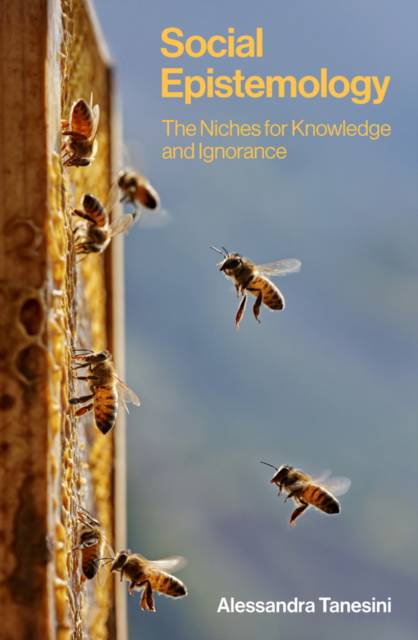
- Afhalen na 1 uur in een winkel met voorraad
- Gratis thuislevering in België vanaf € 30
- Ruim aanbod met 7 miljoen producten
- Afhalen na 1 uur in een winkel met voorraad
- Gratis thuislevering in België vanaf € 30
- Ruim aanbod met 7 miljoen producten
Zoeken
€ 30,95
+ 61 punten
Uitvoering
Omschrijving
Human beings change the world in order to know it more easily and reliably. That is, we construct social and material environments, or 'epistemic niches', and develop cognitive tools to better acquire, transmit, or store information. A queue, for example, is an environment where information about the order of arrival is conveyed by a spatial configuration. Queues are niches that transform an arduous memory task into a simpler perceptual one. In this important book, Alessandra Tanesini argues that knowledge and ignorance always occur within epistemic niches and that neither can be properly described or evaluated independently of the niches within which it is found. She explores two dominant themes. First, epistemic niches in the Global North and, increasingly, elsewhere are quantified niches that promote transforming the world into aggregates of data that are suitable for classification, measurement, ranking, standardisation, and automation. These niches carry distinctive epistemic benefits and disadvantages. Second, some epistemic niches are in the service of ignorance and oppression rather than knowledge. Tanesini offers analyses of some environments that promote epistemic exploitation, appropriation, cultural imperialism, and epistemic extractivism. Social Epistemology: The Niches for Knowledge and Ignorance is a groundbreaking work for students and scholars of philosophy, political theory, social psychology, and related disciplines. Human beings change the world in order to know it more easily and reliably. That is, we construct social and material environments, or 'epistemic niches', and develop cognitive tools to better acquire, transmit, or store information. A queue, for example, is an environment where information about the order of arrival is conveyed by a spatial configuration. Queues are niches that transform an arduous memory task into a simpler perceptual one. In this important book, Alessandra Tanesini argues that knowledge and ignorance always occur within epistemic niches and that neither can be properly described or evaluated independently of the niches within which it is found. She explores two dominant themes. First, epistemic niches in the Global North and, increasingly, elsewhere are quantified niches that promote transforming the world into aggregates of data that are suitable for classification, measurement, ranking, standardisation, and automation. These niches carry distinctive epistemic benefits and disadvantages. Second, some epistemic niches are in the service of ignorance and oppression rather than knowledge. Tanesini offers analyses of some environments that promote epistemic exploitation, appropriation, cultural imperialism, and epistemic extractivism. Social Epistemology: The Niches for Knowledge and Ignorance is a groundbreaking work for students and scholars of philosophy, political theory, social psychology, and related disciplines.
Specificaties
Betrokkenen
- Auteur(s):
- Uitgeverij:
Inhoud
- Aantal bladzijden:
- 256
- Taal:
- Engels
Eigenschappen
- Productcode (EAN):
- 9781509553426
- Verschijningsdatum:
- 18/11/2025
- Uitvoering:
- Paperback
- Formaat:
- Trade paperback (VS)
- Afmetingen:
- 152 mm x 226 mm
- Gewicht:
- 408 g

Alleen bij Standaard Boekhandel
+ 61 punten op je klantenkaart van Standaard Boekhandel
Beoordelingen
We publiceren alleen reviews die voldoen aan de voorwaarden voor reviews. Bekijk onze voorwaarden voor reviews.







